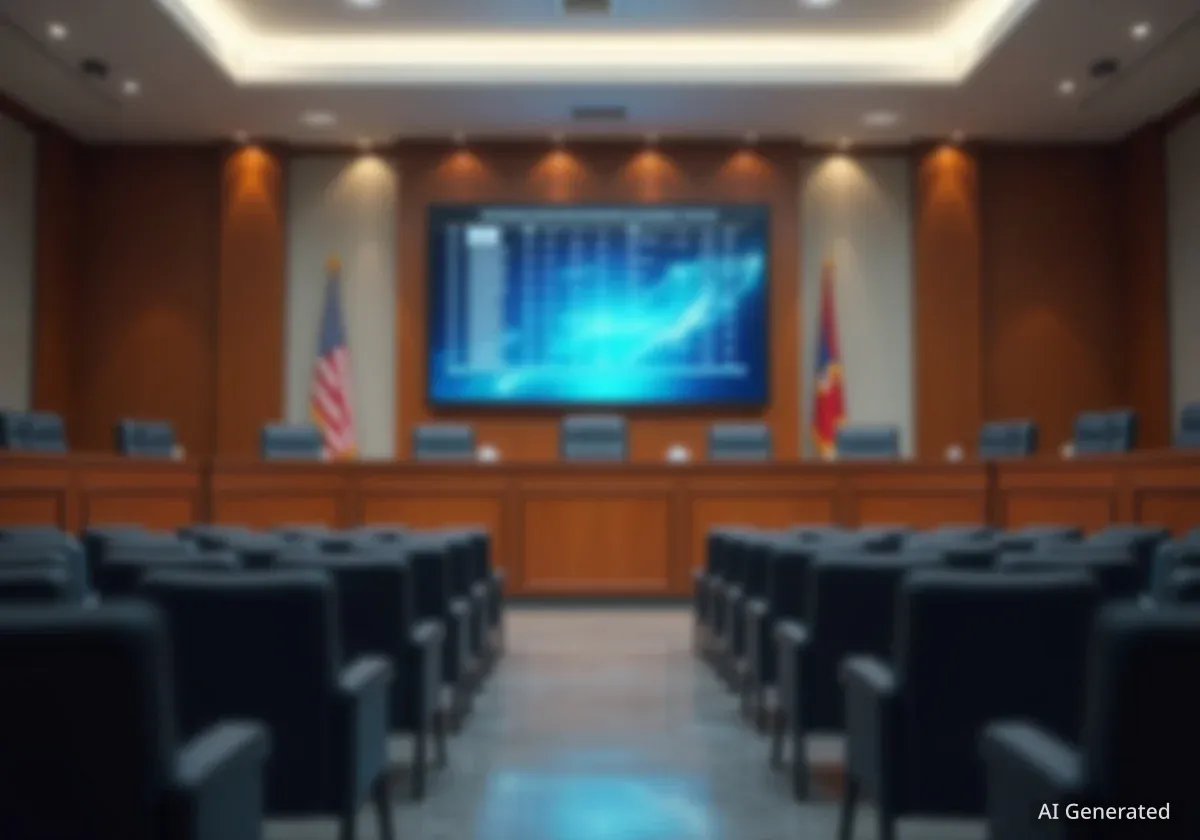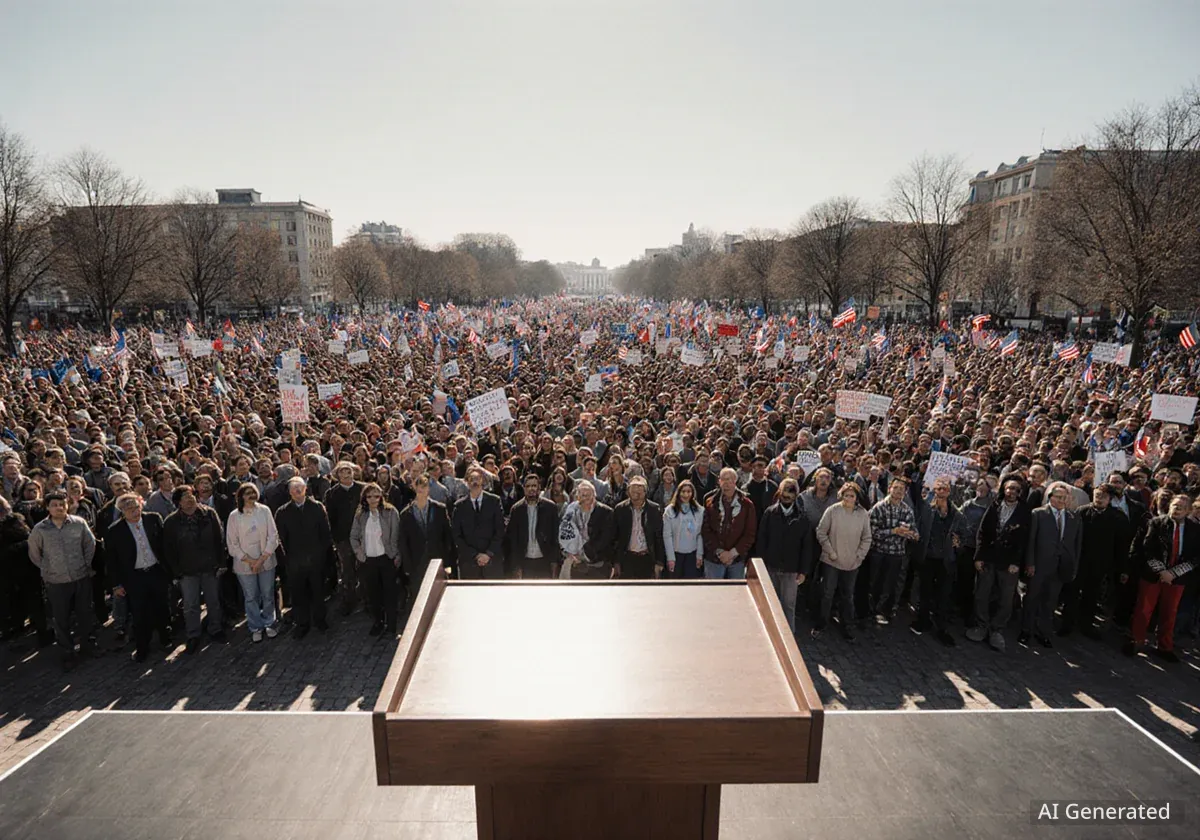The Huntsville City Council is set to review a proposed $343.7 million budget for the 2026 fiscal year, which begins on October 1. The financial plan places a significant emphasis on public safety, infrastructure projects, and support for community organizations, reflecting the city's strategy to manage its rapid growth.
Key Takeaways
- Huntsville's proposed budget for fiscal year 2026 totals $343.7 million.
- Public safety is the top priority, with the police and fire departments allocated a combined $146.2 million.
- The budget includes funding for major roadway projects like the northern bypass to address traffic congestion.
- Over $4 million is designated for community agencies, including WellStone Behavioral Health and the Arts Council.
- A final vote on the budget is scheduled for the upcoming City Council meeting.
Public Safety Receives Top Funding Priority
Under the proposed financial plan, public safety departments are slated to receive the largest portion of the city's operational funds. This allocation underscores the administration's commitment to maintaining security and emergency response capabilities in the growing metropolitan area.
The Huntsville Police Department (HPD) is budgeted to receive $80.6 million. This funding supports day-to-day operations and the addition of 10 new personnel positions, bringing the total number of budgeted police staff to nearly 900. The investment aims to sustain the city's trend of decreasing crime rates over the past five years.
"The proposed increase to our budget is largely tied to day-to-day operating costs and the addition of 10 new personnel positions," Chris Jackson of the HPD stated. "Overall crime in our city has decreased for the past five years, but keeping those rates low requires continuous work and consistent support."
Huntsville Fire & Rescue (HFR) is allocated $65.6 million. This funding will be used for essential tools, training, and operational support for its 539 personnel. The budget also provides for one new position within the department, ensuring that emergency services can keep pace with the city's expansion.
Public Safety by the Numbers
- Huntsville Police Department: $80.6 million
- Huntsville Fire & Rescue: $65.6 million
- Total Public Safety Allocation: $146.2 million
- New Police Positions: 10
- New Fire & Rescue Position: 1
Investments in City Services and Infrastructure
Beyond public safety, the budget directs substantial funds toward essential city services and infrastructure projects designed to improve quality of life and manage urban growth. These allocations cover everything from park maintenance to information technology.
Key service departments receiving significant funding include Landscape Management at $21.9 million and Parks and Recreation at $13.6 million. Information Technology Services is also set to receive a considerable $19.6 million to support the city's digital infrastructure.
Addressing Traffic with Roadway Projects
A major focus of the budget's economic development component is transportation. Funds have been earmarked for critical roadway projects aimed at alleviating traffic congestion, a growing concern for residents. One of the most significant is the northern bypass development in District 1.
The Northern Bypass Project
The northern bypass is a long-term infrastructure initiative intended to create a new transportation corridor around the northern part of Huntsville. By diverting through-traffic away from the city center, the project is expected to reduce congestion on major arteries like Memorial Parkway and improve travel times for commuters.
District 4 Councilman Bill Kling highlighted the importance of this project. He noted that the bypass would not only benefit his district but also ease traffic strain in central parts of the city. "I think the northern bypass, as well as the [Memorial] Parkway/I-565 interchange expansion, are going to be very good as far as helping to alleviate traffic congestion in the city," Kling said.
Revenue Projections and Financial Health
The city's budget is balanced against anticipated revenues of $335.9 million. This income is generated from a variety of sources, with sales tax and property tax forming the financial backbone of the city's operations.
Sales tax is the largest single source of revenue, projected to bring in $138.4 million. Property taxes are expected to contribute $35.5 million, while license fees are anticipated to generate $30.2 million. The remainder of the city's income will come from use and permit fees and other miscellaneous sources.
To ensure long-term stability, the budget includes policies for maintaining strong financial health. A key requirement is that the city must keep a general fund balance of at least 11.5% of its operating revenue. This reserve provides a financial cushion for unexpected expenses or economic downturns.
Support for Community and Cultural Organizations
The proposed budget also allocates significant funding to support a wide range of local community organizations, museums, and cultural venues. These appropriations aim to enhance the social and cultural fabric of Huntsville.
Agency appropriations total over $4 million. Key beneficiaries of this funding include:
- WellStone Behavioral Health: $900,000
- The Arts Council: $550,000
- Huntsville-Madison County Senior Center: $440,000
An additional $30.4 million in special appropriations is designated for area museums, the Orion Amphitheater, the visitors bureau, and various economic development initiatives. This funding is critical for promoting tourism and fostering a vibrant local culture.
In an introductory letter, Mayor Tommy Battle emphasized the budget's strategic focus. "To keep pace with Huntsville’s growth, this budget directs resources to areas of greatest public benefit," he wrote. "Public safety remains our highest priority, with continued investment in police and fire services. We also emphasize economic development to attract new industry and provide quality jobs for our citizens."
The Huntsville City Council is expected to hold a final vote on the proposed budget at its next scheduled meeting, which will take place at 5:30 p.m. on Thursday.





